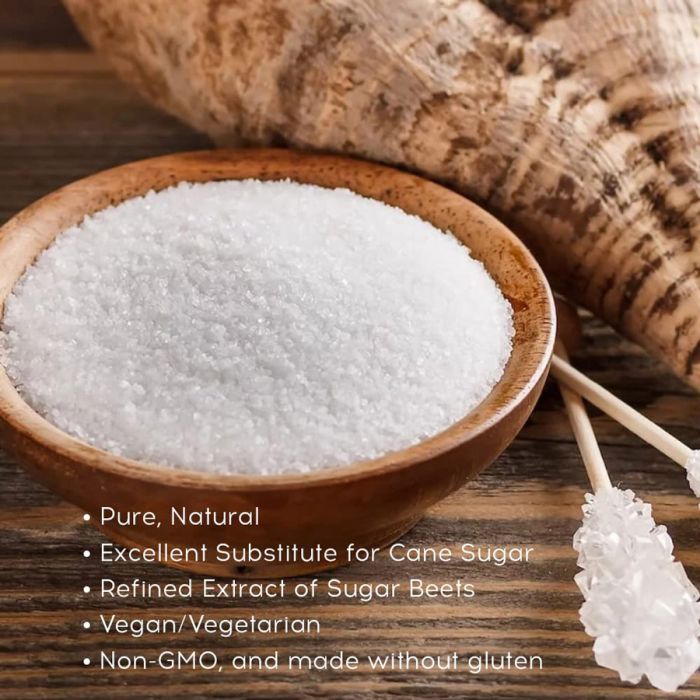Discover the Uses and Perks of Beet Sugar Vs Cane Sugar in Your Daily Diet
Discovering the unique high qualities of beet and cane sugar discloses greater than just their sweetening capabilities; it highlights their unique effect on health and wellness and cookeries. Beet sugar, known for its refined flavor, is frequently favored in fragile desserts, whereas cane sugar, with its hint of molasses, adds splendor to durable meals. Each kind holds its own nutritional account and glycemic ramifications, welcoming a deeper understanding of their functions in a well balanced diet and lasting intake practices.
Beginning and Manufacturing Processes of Beet and Cane Sugar

The unique environments and soil types needed for expanding sugar beetroots and sugarcane add to distinctions in their farming practices and geographic circulation, affecting the business economics and sustainability of their production. beet sugar vs cane sugar.
Nutritional Comparison In Between Beet Sugar and Cane Sugar
Despite originating from different plants, beet sugar and cane sugar are nutritionally extremely comparable, both primarily containing sucrose. Each supplies concerning 4 calories per gram, converting to approximately 16 calories per tsp. Structurally, both sugars are composed of around 99.95% sucrose, with marginal quantities of other substances like wetness and trace element, which do not considerably modify their nutritional profiles.

Eventually, when picking in between beet sugar and cane sugar based on dietary web content alone, both deal the same advantages and drawbacks as they are essentially forms of the exact same particle-- sucrose, giving quick energy without other nutrients.
Effect On Health: Glycemic Index and Caloric Content
Checking out further right into the important link impacts of beet sugar and cane sugar on health, it is vital to consider their glycemic index and caloric material. The glycemic index (GI) of both beet and cane sugar is around 65, categorizing them as high-GI foods, which can create quick spikes in blood sugar levels.
Each kind of sugar has about 4 calories per gram, making their caloric web content matching. For those keeping track of caloric consumption, particularly when managing weight view website or metabolic health problems, recognizing this equivalence is essential (beet sugar vs cane sugar). Nevertheless, excessive consumption of any kind of high-calorie, high-GI food can add to health problems such as weight problems, cardiovascular disease, and insulin resistance.
Environmental and Economic Considerations of Sugar Manufacturing
Beyond health and wellness impacts, the production of beet and cane sugar also elevates considerable environmental and economic worries. Sugar beet cultivation tends to need cooler climates and has a reduced geographical impact compared to sugar cane, which prospers in tropical regions. Nevertheless, both plants are extensive in regards to water usage and land occupation, potentially leading to deforestation and water deficiency. Financially, the worldwide sugar market is extremely unpredictable, affected by changes in international trade policies and subsidies. Lots of nations incentivize sugar manufacturing via financial backing, skewing market costs and influencing small farmers adversely.
Furthermore, making use of chemicals and plant foods in both beet and cane sugar farming can cause dirt deterioration and contamination, more influencing biodiversity and local water bodies (beet sugar vs cane sugar). The choice between growing sugar beet or cane typically depends upon regional environmental conditions and financial elements, making the sustainability of sugar production a complicated issue
Culinary Applications and Taste Distinctions
While the environmental and financial facets of sugar production are certainly substantial, the option in between beet and cane sugar additionally influences culinary applications and taste accounts. Beet sugar, derived from the sugar beet plant, is recognized for its incredibly neutral preference.
Cane sugar, drawn out from sugarcane, often maintains molasses traces, which impart an unique splendor and depth. The small variation in wetness material in between beet and cane sugar can affect the texture and consistency of meals, making cane sugar a recommended choice for specific recipes that profit from go now its unique residential properties.

Conclusion
To conclude, both beet and cane sugar have distinct origins and production procedures, offering similar nutritional accounts with slight differences in salt web content and flavor. While their impact on health, particularly relating to glycemic index and calories, is equivalent, the selection between them typically boils down to environmental, economic factors, and details cooking requirements. Comprehending these aspects can guide customers in making notified decisions that straighten with their health and wellness goals and taste choices.
Comments on “The farming methods for beet sugar vs cane sugar contribute to differences in harvesting time.”